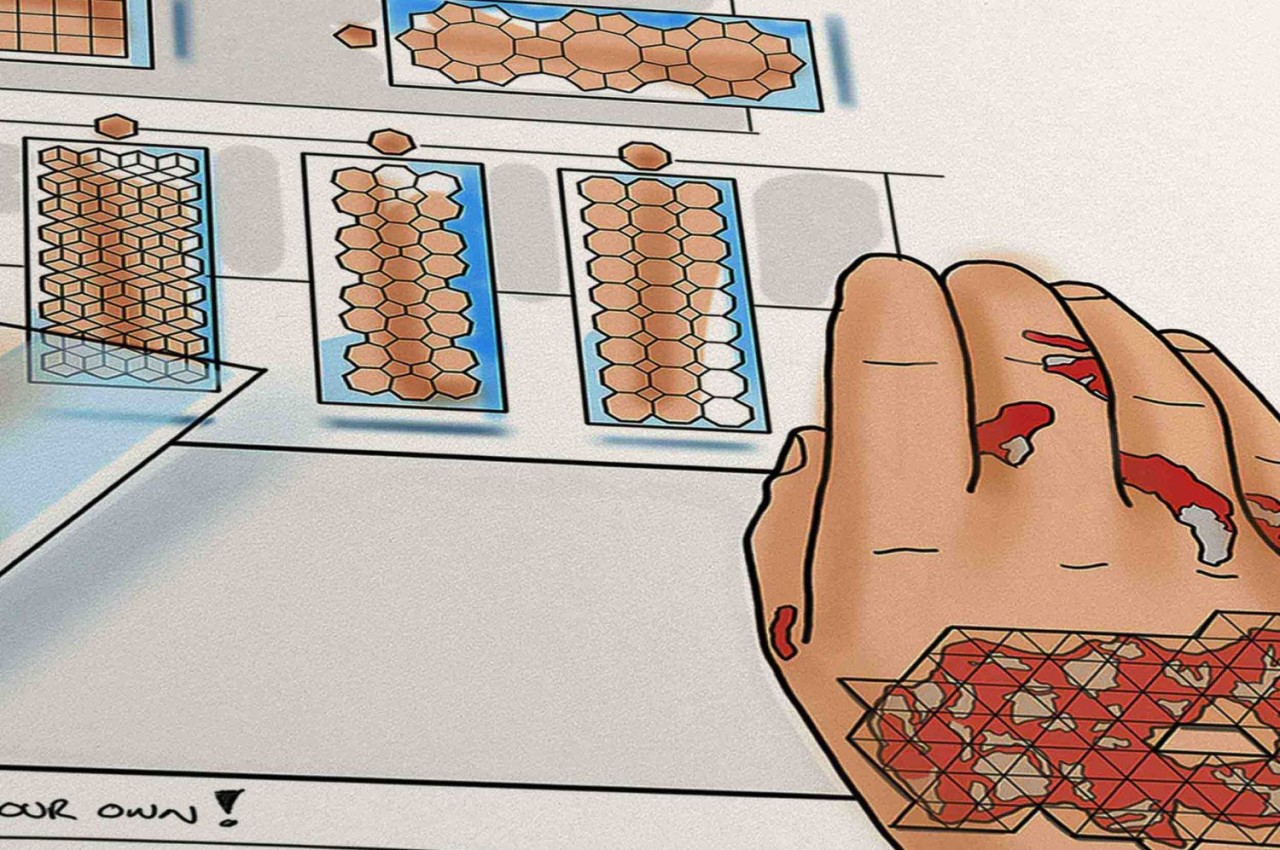
Given how much of it is exposed for everyone to see, skin conditions can easily become a source of embarrassment or even depression for anyone. This is especially true for diseases that require prolonged treatment where afflicted people have to endure not only physical but also mental and emotional suffering during that period. Those with chronic conditions such as psoriasis might feel forced to cover up those blemishes, which might not be good for treatment. Those treatment options often revolve around the technical aspects of the medicine or the physiological condition of the patient, disregarding psychological effects. This wearable medical patch, in contrast, offers a solution that isn’t just innovative but, more importantly, human-centric as well.
Designer: 3M x Feathm Design Studio


Psoriasis patients often feel more than just the discomfort or pain brought about by their long-lasting condition. They also feel some level of hopelessness and anxiety from living with the disease. Treatments for psoriasis do exist, ranging from ointments to injections, but patients still have to endure the sight of their disfigured skin while that treatment is still ongoing. Worse, they can’t cover up those affected patches of skin, at least not without unfavorable consequences in the long run.
The 3M Psoriasis Prescription Patch design tries to alleviate patients’ suffering by hitting two birds with one stone. For one it’s a medical-grade skin wearable that easily lets people apply the patches in affected places, and although the prototype is shown to have a transparent or translucent surface, it’s not hard to imagine 3M applying its technologies and patents to make the patch seemingly blend with the skin or cover up those areas with more aesthetic designs.
More importantly, the patches can actually administer medicine to the skin, making it trivial to apply the right amount of dosage needed for treatment. In other words, these are patches you will actually have to wear to get better, which will hopefully help increase the patient’s confidence while undergoing treatment. The patches also employ a perforated honeycomb design that makes it easier to tear off sections to match the specific shape of the area that needs to be covered. Perhaps it can even be used to create interesting patterns that call attention to the patch in a more favorable way.
On the surface, it doesn’t seem like a medical patch is something ground-breaking, but it’s an innovation that puts a paradigm shift in dermatological treatment. Rather than just the application of medicine, it focuses on the effects the processes have on the mental and emotional well-being of the patients. And with a disease that everyone will be able to see, it’s even more important to take a human-centered design approach that will not only heal people’s skins but also their spirits.